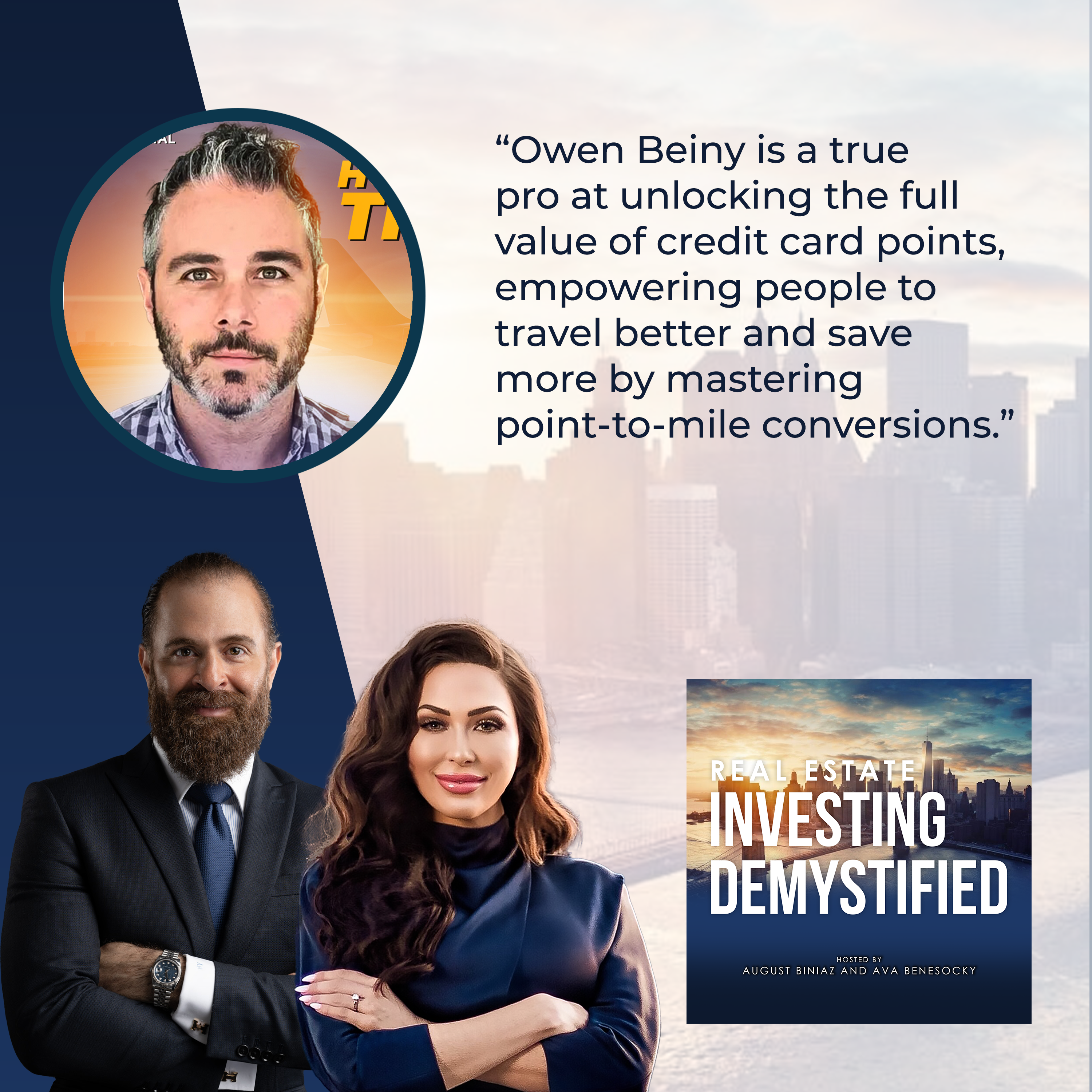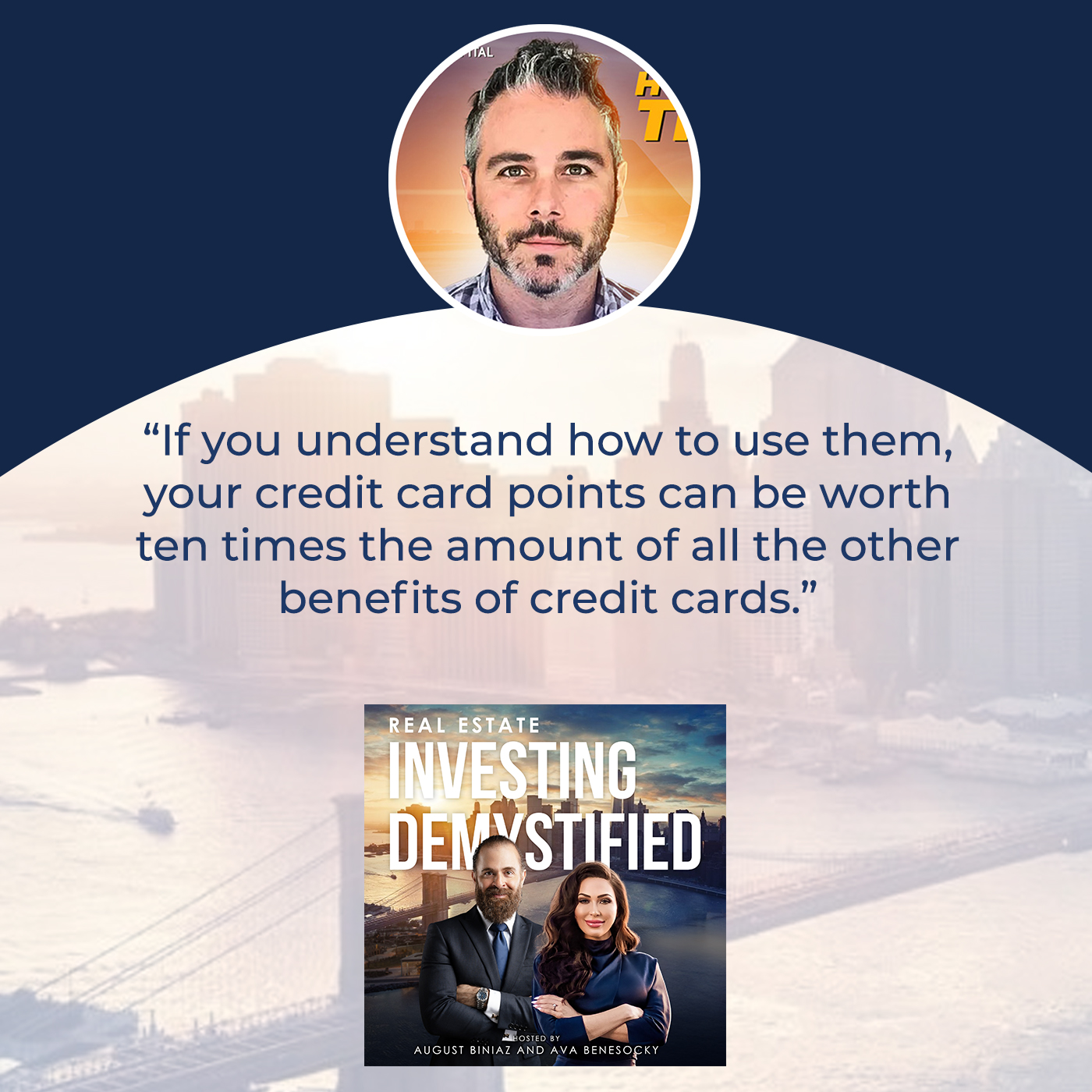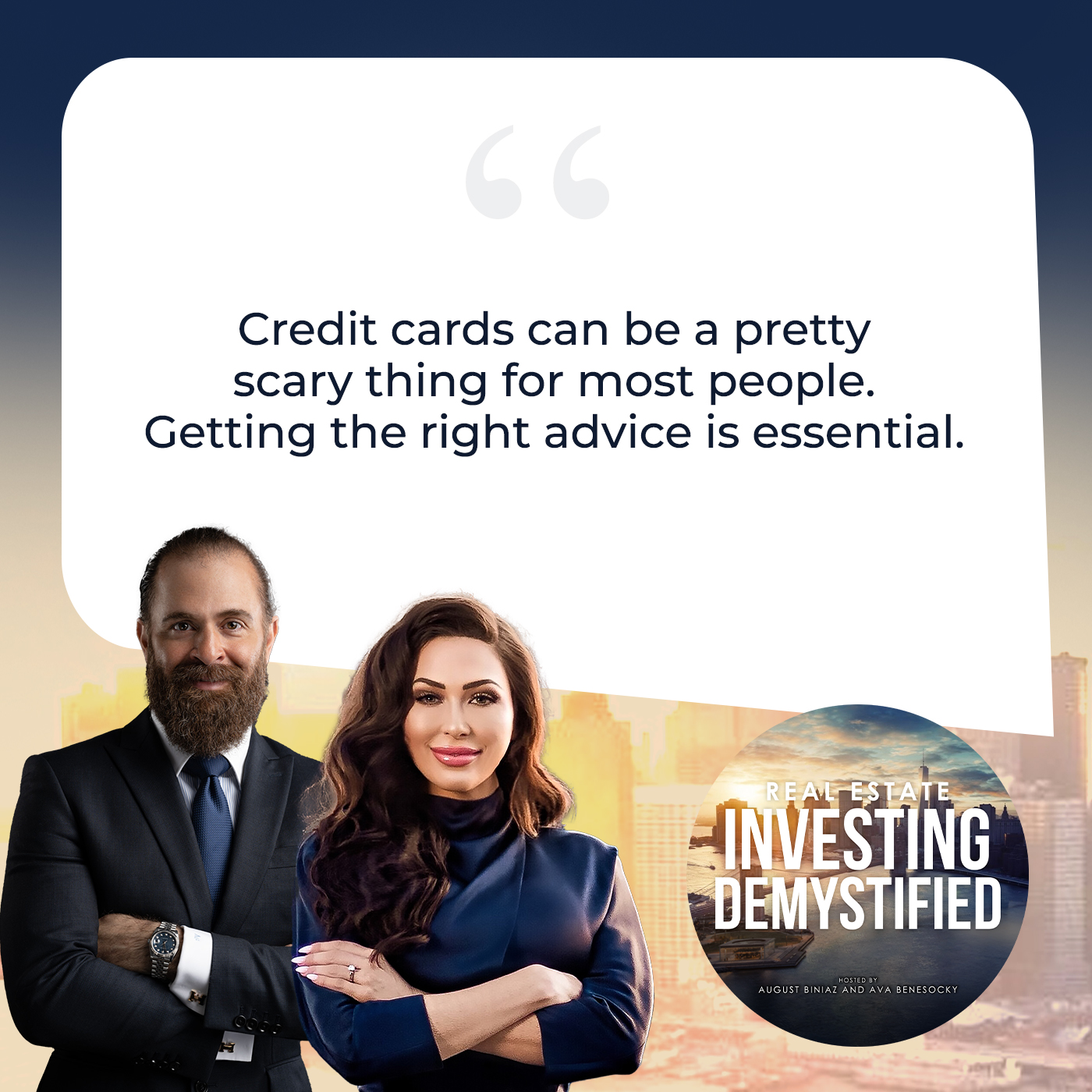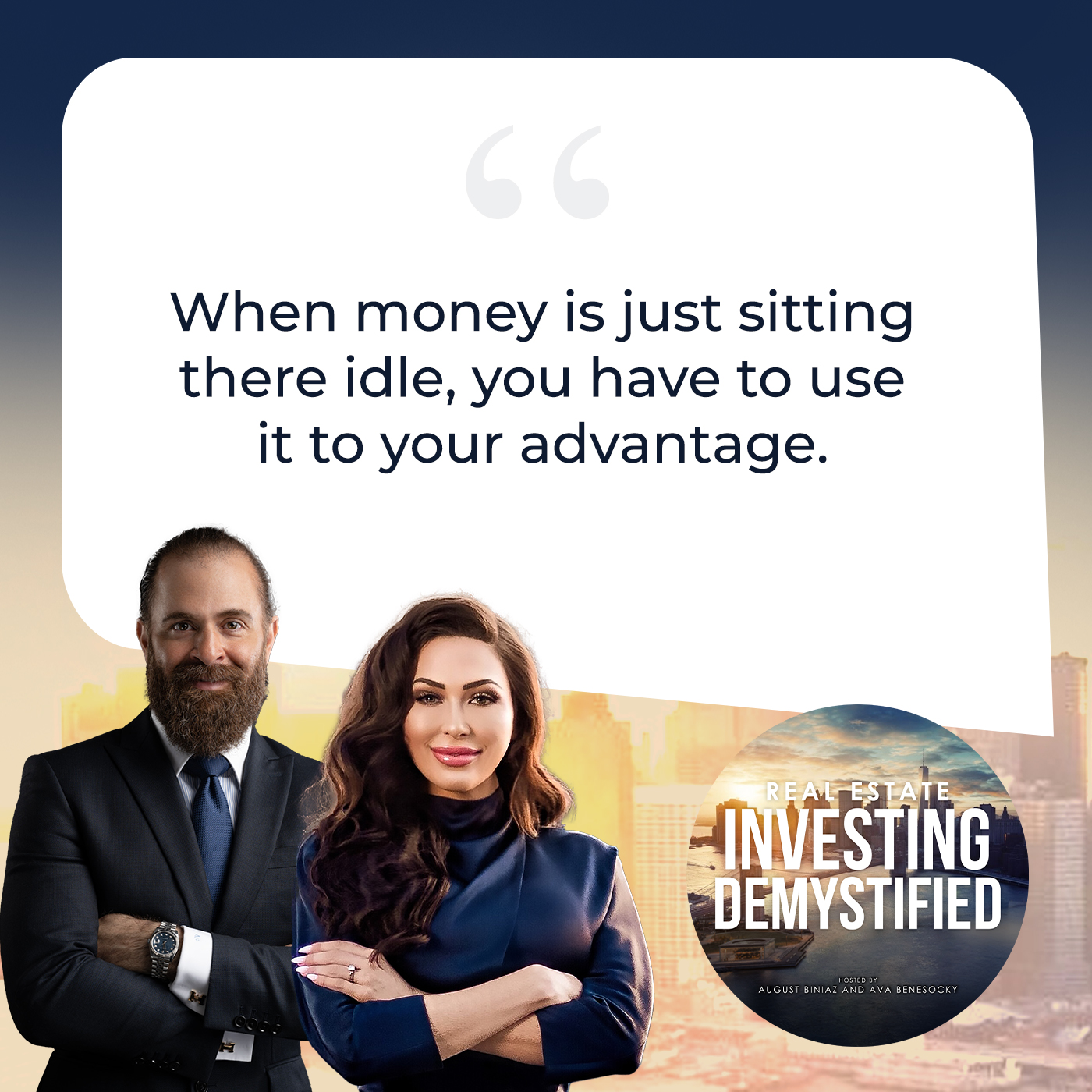Discover the incredible potential of credit card points as a powerful tool for financing travel. In this episode, Ava Benesocky and August Biniaz welcome Owen Beiny of The Points Partner, who shares his expert insights on maximizing credit card points for free travel. Owen dives deep into the often-overlooked potential of credit card rewards within the real estate industry, revealing how real estate professionals can leverage their spending to earn substantial points. With engaging anecdotes and insider tips, he explains the difference between cash back and credit card points, emphasizing the latter’s superior value. This episode is packed with actionable advice to help you fly high on a budget!
Get in touch with Owen Beiny:
LinkedIn: https://www.linkedin.com/in/owen-beiny-08749a/
The Points Partner: http://www.thepointspartner.com/
If you are interested in learning more about passively investing in multifamily and build-to-rent properties, click here to schedule a call with the CPI Capital Team or contact us at info@cpicapital.ca. If you like to co-syndicate and close on larger deals as a general partner, click here. You can read more about CPI Capital at https://www.cpicapital.ca/.
#avabenesocky #augustbiniaz #cpicapital
—
Listen to the podcast here
Important Links
- The Points Partner
- Owen Beiny – Instagram
About Owen Beiny
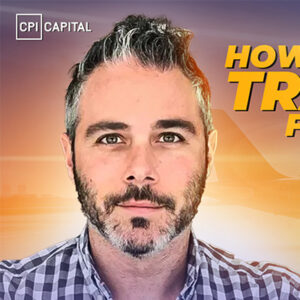
As a single father to a beautiful girl, I know how to travel both with kids and in style – using points, air miles, upgrades and benefits.
After years of helping friends and family with my experience and knowledge of using benefits efficiently, I have turned my hobby into a business.
How To Travel For Free On Credit Card Points – Owen Beiny
In this episode, we’re going to talk all about how you can possibly travel.
Don’t get into it right away. Give it a chance for a second. Let’s build some buildup. Let’s just see how you’re doing, Ava. How’s everything going? I’m on the 75 Hard, this workout routine. Things are going great. Day eleven, so I’m very energetic.
Very proud of August. What’s 75 Hard? Really quickly, tell people. You have to do workouts.
You got to do 2 workouts a day, 1 indoor, 1 outdoor, 45 minutes each. You have to drink a gallon of water. I think that’s almost 4 liters of water for metric people. You’ve got to read ten pages of a book. There’s a bunch of stuff. I downloaded an app that keeps me organized, but it’s been great.
It keeps track of your progress, and you’re doing a great job. Day eleven. He hasn’t skipped a day.
Progress photos. All that stuff.
He’s very dedicated.
Talking about being organized, as real estate investors, as syndicators, people who put together these funds and raise money, we spend a lot of money. We’re huge money spenders. Some of that money is cost for the company. Company owners, we’re business owners, but we also syndicate these deals. There’s a lot of spending, and sometimes those spendings are done with credit cards, so we accumulate some points.
I purposely tell you to put everything on a credit card so we can accumulate points.
We’re doing it in a self-taught way where we don’t have any program we’re following. We’re just learning about it. We have a bunch of properties that we own. We just closed on our most recent property, Atlas at Bay Point in St. Petersburg, Tampa, MSA. There’s going to be a lot of spending because we’re spending $2.5 million on renovations. Can some of that be spent on our credit card? Possibly. Can we use some of these points? We thought we’re going to look around and find an expert who’s going to help us with credit card points and other perks that come with all of that.
Honestly, every time we go to book a flight, I always think, “How do we only have this many points?” We spend so much money on credit cards. Every time we’re turning around, it feels like we’re spending $20,000 on credit cards, but then there’s a very minimalistic dollar value that we can actually use towards our flights. I’m thinking, “We must be doing something wrong here.”
The cat is out of the bag earlier, Ava, but go ahead. Tell our audience about our guest and everything else.
Credit Cards
Absolutely. I’m going to let him tell us all about who he is, but we’re joined by Owen Beiny, and he’s the Founder of a company called The Points Partner. He really teaches people all about how to maximize your points and how to use them, what credit cards to use and what credit cards not to use, and all different kinds of things that you can learn. We’re really excited to get into things with Owen and learn a lot ourselves. Owen, welcome to the show. Thanks for being here.
Good morning, good afternoon, or indeed good evening to you all. I am particularly excited about that. I’m going to do a whole intro about myself in a minute. That can wait. First of all, I cannot believe you’re doing 75 Hard. Good for you. That is 74 harder than I’m willing to go. That’s very impressive.
No alcohol, by the way. 75 Hard, I forgot to say, no alcohol.
You don’t drink anyway.
I quit drinking, so I’m right with you, brother. I get on the beds on planes, and I have to turn down the champagne. It’s next-level stuff going on there. Before we get into all of that, I have to say something. Forget the 75 Hard, forget who I am and why I’m here. You guys are a real estate crew. I want to tell you something. Whenever anyone approaches me to do with real estate, doing what I do with credit card points and air miles, it immediately catches my attention.
That’s the reason why I wanted to speak to you guys. Real estate is the number one industry in the world for gaining credit card points and using them for beds on planes for free, like the ones behind me, and that’s the reason I’m here, because your audience, your crew, your followers, your lovely jubblies, whatever you want to call them, has a bigger opportunity for playing my game than I do. That’s the reason I’m excited. Let me do a quick intro, and then we’re going to get straight into some details. We’re going to unwind it all.
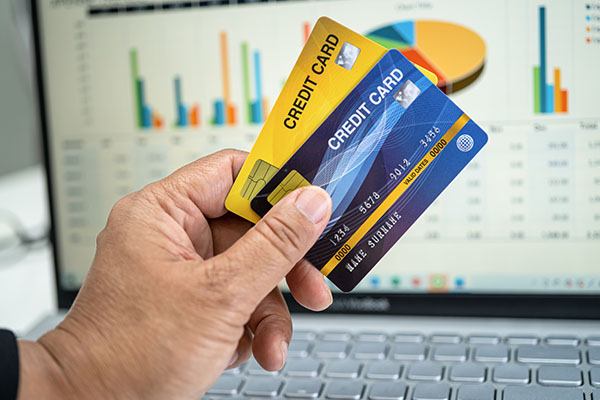
Credit Card Points: Real estate is the number one industry in the world for gaining credit card points.
I’m Owen. I am known as the Points Partner. What I do is help individuals and businesses maximize their credit card benefits. I help them get as many credit card points and air miles as is mathematically possible for their lifestyle, and then I teach people how to use those points efficiently. In other words, I put people on beds on planes for free. That is what I do for a living. I do it in a plethora of different ways. I’ve got free online courses, paid online courses. I see people privately on Zoom.
I help find flights, book flights. I have all the credit cards on my website. You name it. If you have anything to do with your credit profile, your credit score, credit cards, points, air miles, cashback, airports, Ubers, getting to the airport, lounges, beds on planes, anything in that remit, that is my jam. That is what I live for. That is what I love for. I’ve dedicated my life to not only doing it for myself but for teaching and educating others how to do it as well. Let’s get down to some real estate.
By the way, the two of you can put your feet up. I’m just going to talk at you for as long as possible. I’m kidding. The easiest way to start with people who don’t understand this stuff is for me to reel off 2 or 3 really simple things that they need to know. Number one, what are rewards of credit cards? They are either cashback, air miles, hotel points, or credit card points, and they are not equal. People think that 1% cashback is the same as 1 air mile, which is the same as 1 credit card point, which is the same as 1 hotel point. That is not true.
Let me be very clear with you, cashback is worth the least, then hotel points, then air miles, then credit card points. Credit card points are the ones that are worth the most by far. That’s why I’m called the Points Partner. I’m not called the Cashback King, the Air Miles Man, or the Hotel Homeboy. It’s all about the points. If you understand how to use them, then they are worth ten times the amount of all the other benefits of credit cards. That’s the number one thing, because most people always say, “I don’t want to deal with it. There are blackout dates, or they’re not worth very much, or I’ll just take the cashback,” like they’re equal. They’re not equal.
Using The Points
You’re selling your soul to the devil for $12. It’s not worth it. You’re better off learning how to use the points. Let’s talk about using the points. How do you use the points? There are two different ways that you can use your points. The first way is you can go to the travel button in your credit card company. This is known as the travel portal. It’s no different from Google Flights, Kayak, or any of these flight places. You are searching every plane, train, automobile, car rental, and cruise ship, and they are charging you in your points, not in dollars.
They will charge you 100 times the cost of the dollars, but in points. Let me explain. Let’s say you want to book a $1,000 airfare. They will charge you 100,000 points. That’s the reason everyone always says, “These points aren’t worth anything. I’ve got millions of these points. I went to book a flight and couldn’t even afford to book one flight.” That’s because you’re using your points incorrectly. There’s a second option.
The second option is you can move your credit card points out of the credit card companies and into airlines, and they become like magic air miles. “This is very confusing because you said that points are worth more than miles, but you want to take your points and turn them into miles.” That’s all the gray hair on my head. It’s complicated. It’s not simple, but if you get it right, your points can be worth ten times the amount. Let me give one example, and then we’re going to have a chat. I’m going to let you two speak for about ten seconds. I live in Los Angeles. Don’t let my British accent fool you. I live in Hollywood.
Let’s say I want to fly from Los Angeles to Paris and back. It’s in business class. Let’s say it’s a $7,000 US dollar ticket. To do that in the credit card company, it will be 100 times that in points. That is 700,000 points. No one’s got 700,000 points, apart from real estate people. We’ll come to that in a minute. If I move those points into an airline and they become air miles, it can be done for around 100,000 to 120,000 points or air miles. I just got seven times the value by clicking one button. That’s using the points. When it comes to gaining the points, different credit cards give you different points for different things. There are these things called bonus categories, places where you can get extra points for spending the same amount of money.
Instead of getting one point for every dollar that you spend, you can get 2, 3, 4, or 5. Where are these places? These places are food, drink, gas, travel, marketing, and office supplies. That last one, office supplies, in office supply stores, they sell gift cards for all of the places that you need to do real estate stuff, Lowe’s, Home Depot, Amazon, Best Buy, wherever you’re buying the stuff for these real estate projects. The hardware, the software, the materials, the concrete, the labor, and all that stuff can all be done in a place where you can get five times the points.
By using the right credit card at the right place at the right time, you can 10X the amount of points. When you come to use the points, you can do what I just said and get another seven times again. On top of that, there are bonuses every month. This credit card company is giving a 20% bonus, a 25% bonus if you move your points to the right airline. If you can match up using the right credit card, moving the points in the right month, and booking it the right way, you can end up with twenty times the amount of free travel that you had yesterday, and that is what I do for a living.
For somebody who wants to utilize this, is this something that they have to do a bunch of research, or is there a blueprint that they can follow? Is there a guide they can follow?
I have designed my education so that there are no excuses. You don’t want to pay anything? No problem. There’s a free course on my website for an hour and a half. Go watch that, please. You want something else? Go to my Instagram, @ThePointsPartner. There are 4,000 videos. I make one every day with a new tip. There’s plenty of free information. I give it out.
When you’re ready to go to war with it, I have a paid full online course that you can watch or if you’re a business, you spend more than $10,000, $15,000, $20,000 a month for your business or privately, then you’re going to want to see me for a private consultation on Zoom for a couple of hours. Maybe you don’t want to learn this stuff. You don’t have time for this. You just want it taken care of. No problem. Me and my team will find your flights, book your flights using your points. Maybe you just want to know which credit cards to get and you don’t want to learn how to do the rest of it. No problem. Book in with me for fifteen minutes. I will diagnose what credit cards you need, in what order, when, why, how.
By the way, this is not just about benefits of credit cards. The sexy math of it is beds on planes, but it’s not just points and beds on planes. It’s also purchase protection, benefits of credit cards, lounge access. There’s so much that comes with credit cards now, you’d need a degree to understand even what your benefits are. I’ve done all that work. While everyone else was fighting over dollars and pounds and cryptocurrency, I was fighting over credit card points and air miles. I just don’t really have that much competition.
There’s a handful of people around the world that know what I know. I can talk to you and ask you ten questions. What’s your credit score? How much do you spend a month? Where do you spend it? Do you fly alone or with a family? What’s your home airport? From those five questions alone, I can diagnose how many credit cards you need, what order to get them in, how to use them to get the most amount of points, the most amount of protection, insurances, lounge access, and all the things that you need.
Fair enough. Anybody who watches this show, be it a high-spender or high-income earner or what have you, it’s a no-brainer to get in touch with you to kind of get that process. Let’s break down the mechanics of it a bit. Do you have a question, Ava? I’m in the middle of getting this point. What I’m saying is we just want to understand the mechanics of it a bit before that, the kind of the service that you have. For example, you talked about moving points. Do all credit card companies allow for those points to be moved?
It depends which country you’re in. The best country in the world for credit card benefits is America. That’s why I live in America, and I’m originally British. In America, you have five major credit card companies that will allow you to move the points out into some but not all airlines. In Canada, you have one. In England, you have one. It depends which country you’re in, which systems you’re on, but you can take advantage of them anywhere in the world. I describe it as incoming points and outgoing points.
Incoming points as credit cards. It depends where you are. America is the best. After that, Canada, England and Australia are the same, and then after that, it starts to get a bit weak. For outgoing, so using the points, it is the same worldwide. Anyone anywhere in the world can join any frequent flyer program of any airline for free on their website in under a minute. You can start earning air miles, learning how they work, and using them efficiently.
We were talking about the worst one being cashback, and then the best one is credit card points to utilize. What I was going to say is that, in our case, it’s a pretty unique situation. We’re from Canada, all our credit and credit cards are from Canada, and we part-time live in the US. We’re planning to move to the US.
I guess we’re going to be in the best place when it comes to points, but the credit card company that we’re currently with, TD, Toronto Dominion, has a partnership with Expedia. We always take those points, jump into Expedia, and spend them. That’s what Ava was saying. We’re spending $20,000 a month.
Let’s do one minute just on the Canadian system. The Canadian system is so simple. You have American Express in Canada, which you can transfer out. It’s awesome. Every Canadian client I have says, “But I can’t use the Amex hardly anywhere. In Canada, they hate American Express because they charge extra to swipe it.” No problem. You’re going to have to have some other credit cards that sit alongside an American Express when you’re in Canada. TD would not be at the top of that list for the reason you just mentioned. You can’t move the points out.
Canada is very unique. Air Canada represents an enormous percentage of the flights leaving Canada, even more so than other national carriers. Here’s where it gets a little bit complicated but also useful. Air Canada is a part of Star Alliance, which is the largest alliance of airlines in the world. It represents almost 40% of all of the planes in the skies. By having an Air Canada Aeroplan, which is their frequent flyer credit card, you are putting miles into a bank that represents 40% of all flights anyway. If you can match up an American Express card and, when they don’t take Amex, use your Aeroplan card, you’re putting yourself in a good position to begin with.
Air Canada has its own credit card?
Yeah, they have tons of them. Air Canada even has its own credit cards in America for Americans that are different from the Canadian one. I have it. There are layers to this stuff. It gets very complicated. Also, a lot of what I do is help businesses, especially ones in real estate, when they’re trying to become efficient with this stuff. When you say to me, we’re in Canada, but we’re moving to the US, I can backdoor you from your Canadian credit into US business credit cards. There are phone numbers you can ring. There are departments that specialize in exactly what you’re doing. You’re not the first people ever to move and spend lots of money every month.
There are whole departments. It’s just nobody knows about it, and they don’t advertise it. I know about it. I know who to call, what numbers to ring, what to say in order to literally take your existing credit from your existing businesses in Canada and pick them up and drop them into the US, and suddenly you’re getting 5 times the amount of points, and you can do 5 times as much with them. It’s understanding the detail beyond this stuff. Where do you start? Who do you phone first? Which form do you fill out to get the party started?
Credit Card Users
One more quick thing is I also want to differentiate between three main points. One is your average everyday person who’s got a credit card, maybe $5,000, $10,000 limit. Maybe they spend less than a couple of thousand dollars on their credit card per month. I believe that the majority of people fall in that category.
You’ve got business owners who have their personal expenses, and they’ve also got their company expenses. I’m just totally throwing out these numbers. They’re spending everything at like $10,000 to $20,000 a month. You’ve also got people who are professional credit card points people. They don’t teach it like you. They don’t have a coaching program, but they just have these ways where they open a credit card and then they close it in time. There’s all these gamuts they use. Can we differentiate between these three?
Yeah, absolutely. What you just referred to is what’s called credit card churners. Credit card churners are people that open up and close credit cards a lot just to get the sign-up bonuses. That is a whole industry on its own. I have all the details of it. I do not share them publicly. I don’t recommend it. It’s bad for your credit, and it’s bad for your relationship with the banks and the credit card companies. To a certain degree, it’s being a professional gambler. I wouldn’t recommend it.
You have what’s called the MS crew. The MS crew stands for Manufactured Spending. These are people that are credit card and points and air miles and cashback junkies, of which I used to be an MS guy. That means that you find ways of spending money on your credit card to get the benefits, the points, the air miles, the cashback, but then somehow you get your money back by selling the product or returning it, or there are twenty other different hacks or ways of doing it. To a certain degree, there are plenty of MS small things that you can do on a daily basis that will get you extra points, but it doesn’t upset anyone. It doesn’t break any rules, there are “organic,” natural ways of earning points or credit cards. I wouldn’t recommend. It’s not needed.
There are tons of organic ways to earn points or credit card benefits that don’t break any rules. Share on XHere’s what I’ll say. The first category of people that you spoke about, the people that spend normally, I call this organic spend. People that spend a couple of grand a month on food, drinks, some bills, doctor, lawyer, dentist, that kind of stuff. If that is maximized, if you truly understand which credit card to use, when to use, what to do, and you have an order of these ways of doing these things, you can have more than enough to have beds on planes every summer and possibly every winter for your vacation.
The majority of my clients are regular people that have met me. They saw me on an interview, a podcast, Instagram, Facebook, TikTok, LinkedIn, somewhere, Good Morning America, whatever it was. They saw me somewhere, went to my website, watched a free course, and were like, “I’m in.” They watched the full course and now they’re on beds on planes once or twice a year for their summer vacation with their family. That’s one group of people. I call that the organic spenders. You’ve got the business spenders.
Let’s call them retail.
Those are your retail investors. You’ve got your business people, because they’re flipping a house or they’re building, whatever they’re doing, they’re spending $10,000, $20,000, $30,000, $40,000, $50,000, $100,000 a month on these credit cards. Now we’re in the big-boy league.
We call them institutional, let’s say.
The institutional investors. There’s a whole new world of credit card points to talk about for them. Let me give you a couple of gems so you can understand. When you start talking about institutional credit card users, we need to start breaking down credit cards. Are these personal credit cards, business credit cards, or corporate credit cards? Let me explain. Most people don’t even know the difference between the three. Personal credit cards pull on your credit, and you are responsible for paying them. Business credit cards pull on your credit, and you are responsible for paying for them. Corporate credit cards don’t pull on your credit, and you are not responsible for paying them.
Most people think that business credit cards are corporate credit cards. They’re not. If it says business, it’s still you. It’s still pulling your credit. You’re still responsible for paying it. Most people don’t even realize that. When we start talking about credit cards for institutional spenders, we’re also talking about the difference between a credit card and a charge card. Most people don’t understand the difference. I’ll explain a simple version of the difference.
A credit card has a limit. It has a $10,000 limit, for example, and you have to pay it off this month. If you don’t use it, it has 12% interest next month. A charge card is like a spending muscle. The more you spend on it, the more they give you. This is known as unlimited. I have no limit on my credit card. First of all, it’s not a credit card, it’s a charge card. Second of all, you do have a limit, they just don’t tell you what it is.
The more you spend on it, the more you’re building houses and putting $50,000 a month, the more they’re going to give you. This card is designed to be paid off at the end of the month, not to hold a balance. They will reward you by you giving them back the money that you borrowed every month. They’re going to give you lots of yummy credit card points, and we’re going to put you on beds on planes. It’s very important that you understand the difference. If you are running your real estate business and you’re flipping houses and doing construction, and you’re doing it on personal credit cards, your credit is not going to be doing very well because the largest part of your credit is what’s called your credit utilization.
This is the percentage of your available credit on your credit card that you use each month, not payoff, not debt, just how much you use. If you have a $10,000 limit and you spend $10,000 this month on buying bricks or chicken wire or whatever it is that you’re buying, you’ve used 100% of your credit, which means your utilization is through the roof, which means your credit score is going down. The way to avoid this is by using business credit cards. They don’t report your utilization to the credit bureaus because they understand you’re running a business. You need to spend a lot of money on bricks.
When you start to dive into the details of these things, you start to learn some very interesting things. I get it all the time. I live in Hollywood. I have crappy Z-list celebrities that are my clients, and they come to me. They spend $! million a month, they pay it off every month, but their credit is no good. They’re like, “Why is my credit not so good?” I explain, “It’s because your utilization is through the roof. You’re spending like a business. We need to get you a business credit card so they don’t report your utilization back to the bureaus.” That’s just 1 of 1,000 gems. The more you unpeel the onion that is the points partner, the more credit gems and beds on planes that come out.
What inspired you to start learning about how to use points? Did you travel a lot by yourself or with your family?
I’m going to answer the question if you promise not to ask me any more questions once I tell you why, because it’s more interesting than what I do. I used to run a paparazzi photography company, and my job was chasing celebrities around the world. I was on beds on planes with celebrities every day of the week, flying around the world. I learned every airport, every credit card, every lounge, every seat, every upgrade, every staff member. I learned the whole thing naturally by traveling for business with celebrities. I came to Hollywood originally when Britney Spears had her first breakdown to cover that story.
Leave Britney alone.
I did. They said it would last a week. I flew out for a week, and a week turned into twenty years. I ended up staying in Hollywood. I got married, I got kids, got divorced, left the industry, opened up The Points Partner, and the rest is history.
Advising People On Credit Cards
Here you are now. I was just going to say, like, when you’re advising people, credit cards can be a pretty scary thing. Most people have a hard time just meeting the deadline to make sure they pay their credit card off on time, and there are high-interest charges.
What do you advise us?
Let’s find out. This whole conversation is financial literacy. We’re talking about it at the high end. Here’s a better way. Credit, as an overall topic, is a tool. You can do good with it, and you can do bad with it. It’s like a hammer. You can take a hammer, and you can build me a house. You can also take a hammer and smash down my house. Credit is exactly the same.
If you treat credit badly, you’re going to get a bad credit score, you’re going to pay higher interest rates, and eventually, you’ll end up in jail. If you do the right thing with it, you pay it off on time every month, you put it on autopay, and you get lots of yummy points, and then you get beds on planes and you fly around the world like a celebrity. It’s a tool. You just need to learn how to use the tool. I teach people how to use the tools of credit. That’s the easiest way to understand it. I am a math teacher for what I think is sexy math. I think these beds on planes are sexy. They’re super fun. You feel like a celebrity. You don’t get jet lagged. You have premium experiences. You feel like a king or a queen. It’s just sexy math.
That money is just sitting there idle anyway. You’re just not using things where you can use.
It’s about being efficient. Each one of these credit card points, if you use it badly, is worth $0.07. If you use it well, it can be worth $0.09. It’s just utilizing. It’s just being efficient. It’s basic math. The way that the system is designed, there is no one to sell you on how to do it efficiently. It doesn’t make sense for the credit card companies to show you. It doesn’t make sense for the airlines to show you, which leaves me running around like a headless chicken trying to tell everyone how to do it. That’s it.
It’s just a subject that no one, apart from me, seemed to think was worth teaching everyone. In other places, they teach you cryptocurrency, they teach you investing, they teach you building houses, flipping houses, they’ll teach you anything. There’s always someone who’s willing to teach you something and charge you for it. I noticed nobody was teaching this. I jumped in, and the rest is history. I love real estate people because you’re all driven. You’ll wake up at 5:00 in the morning and start flicking on TikTok, looking for the next mantra that’s going to change your life and make you a billionaire.
Here’s something I’ve noticed. Whenever they interview billionaires or successful people and they say, “What’s your one key to success,” they all say the same thing. They all say, “You have to be passionate about what you do.” I always used to think, “That’s easy for them to say. They’re rich. Of course, they’re going to do what they love all day long.”
No, that’s not the reason they say it. If you’re not passionate about what you do, you’re not going to be as animated as I am. You won’t affect people as much as I do and they won’t want to work with you, buy from you, sell with you, communicate with you, or collaborate with you as much as I do. You can tell when you talk to me, I freaking love credit card points and beds on planes. You won’t find anyone that will talk about it for longer. You’re going to have to just shut down the Zoom call because I’ll just keep going. This is not work for me. I genuinely love my credit card points, and I love flying around the world.

Credit Card Points: If you’re not passionate about what you do, you’re not going to be as animated as I am and you won’t affect people as much as I do.
Favorite Travel Experience
Speaking of which, tell us about your favorite travel experience, like where everything was free. You used all your points, and all that.
In the last week alone, I live in Los Angeles. I flew to New York with my daughter, dropped her off at summer camp. My girlfriend lives in New York. I picked her up. We flew business class, six-foot lay flatbed, to London. When we arrived in London, we took a coach to a different airport where we took a different plane to Sardinia in Italy. We’ve been in Italy, just relaxing and eating some great food, going to some great beaches. We flew from Sardinia back to London. I’m currently coming to you.
It looks like I’m on a plane. I’m not. I’m in my parents’ house in London. I’m visiting them for the next few days, and then I’m flying back to New York with my girlfriend, business class again, six-foot lay flatbeds. A few days later, I’ll fly back to Los Angeles. This is not summer vacation for me. This is my life. This is what I do, and I do that all for free.
I do not pay the $7,000 for each one of these tickets. It’s just not possible. I do easily a couple of hundred thousand dollars’ worth of travel a year. I pay maybe, I don’t know, $2,000, $3,000 in taxes for the whole thing. An average flight for me is about a $7,000 flight, of which I’ve paid roughly 110,000 points and maybe $100 in taxes.
Calculating Points
How much spending is that? How much did you have to spend to get the 100,000 points?
I knew if I carried on long enough, I could poke you to ask me the right questions. This is really what it comes down to. Anyone can spend lots of money on their credit card to get the points, but I don’t want to spend money. This is not about going out of your way to spend money to get the points to travel for free. That makes no sense.
This is about utilizing money that you were already going to spend and getting the most for it. I guess let me rephrase your own question for you, which is how many points do you get per dollar spent? That’s really what it comes down to, because that way, we can answer the question for David in Connecticut and Susan in Vancouver. We can answer the question for everyone at the same time, whether they’re in real estate or not, or rich or poor, good credit or bad credit, whatever.
Credit card points are about utilizing the money that you are already going to spend and getting the most for it. Share on XOne second. Points are measured differently, though, no?
No. All credit card points are essentially measured the same. The value changes depending on how you use them. David in Connecticut might use his to get free stuff on Amazon and get $0.07 per point, but Susan in Vancouver might transfer out for beds on planes and get $0.09 per point. It’s how you use the points that determines the value. That’s where it gets interesting. I want to just take a slight step backwards. How many points do you get per dollar spent? Every credit card worldwide will give you one of something for every dollar you spend, 1 MR, 1 point, 1 cashback, 1 hotel point, whatever for every dollar you spend.
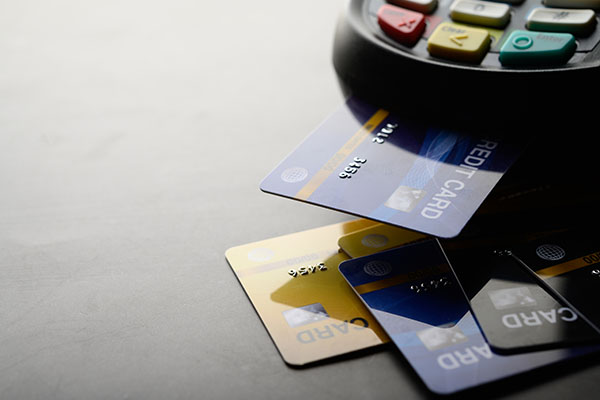
Credit Card Points: All credit card points are essentially measured the same. The value changes depending on how you use them.
There are these six places, food, drink, gas, travel, marketing, and office supplies, where you can get 3, 4, 5, and sometimes even 10 times the points for every dollar spent in those places. On top of that, you have what’s called sign-up bonuses. On my website, you will get bonuses just for getting a credit card, sometimes as much as 100,000 points just for getting the credit card. The credit card companies look at this as a customer acquisition cost. How much does it cost us to buy Ava as our client? They work it out, and to them, it’s worth whatever it is. However, to them, what they’re paying for the points and what we’re using them for have two different values. It may be costing them $100 in points to buy Ava as a customer, but we can use those points to get a $7,000 flight.
That’s where it becomes what I call corporate mafia. In this example, Ava, the credit card company, and the airline working together to screw everyone else, and those three win. It’s not like we’re screwing the credit card companies or we’re screwing the airlines, far from it. Airlines make more money from credit card companies than they do from selling tickets on planes. This is a great story. It’s best way to explain it. During the pandemic, when all the flights were grounded, Delta looked like they were going to go out of business. They leveraged their frequent flyer program, their air miles, against the bank to stay alive. Their air miles are worth more than the company itself. That’s the same across the board. Air miles and the selling of them to credit card companies, who then sell them to us, is worth more than people who pay to get on planes. It is that simple.
Let me get a couple of things again in respect of our time. You gave an example. For Canada, you said the best card to get is an American Express and then get an airplane from Air Canada. We understand that with the Canadians. American Express is just one company. There’s no institution. You don’t go to TD and get a TD American Express. You just go to American Express.
American Express for Canada only. It’s super simple. Go to American Express Canada and get either the gold or platinum card, depending on what suits your life more. When you need a secondary card that is a Visa or Mastercard, my recommendation is to do one that gets you Aeroplan air miles, which all the major banks, including Air Canada themselves, also hold as credit cards. That’s a very simple setup for somebody who’s in Canada, who spends money in Canada exclusively. If you even sniff America, there is something better to do.
Best Banks For Retail Customers
Let’s talk about America. Let’s very quickly go over this. Let’s talk about retail, institutional, and then forget about the professional. If people don’t want to go through all the headache, they just want the best bang for the buck, what would it be for retail?
Assuming that people are an average of $1,500 to $3,000 a month, they’re normal people. I don’t know if that’s a correct statement. The two most popular credit cards on my website are the Capital One Venture X, followed immediately by the American Express Rose Gold card. Let me explain why. You can only get those two on the same day if you do it in order, the Capital One Venture X followed by the Amex Rose Gold card.
The Capital One card is a Visa card, so it’s taken everywhere. It gives you unlimited two times points everywhere, 365 days a year, and it comes with lounge access. The Amex card, the Rose Gold card, gives you four times points on all of your food and drink. By getting those two cards on my website only, in that order, you are covering all your bases in one easy shot because you’re getting 4 times points on food and drink, 2 times points on everything else. You’ve got an Amex card, you’ve got a Visa card, you’ve got lounge access. You are laughing. You’re averaging about three points per dollar spent, which is insanely high for a two-card combination. That’s the easiest retail mover.
When you say on your website, literally they go on your website and they can apply for the credit card literally on your website.
Your next question for me is, “Why should they do it on your website versus any other website?” The short answer is there’s not a great deal of difference. It’s the same deal nationwide. The difference is that you get me and my team. If you have any questions, you can just DM me or email me.
Sometimes, there’s a lot of pop-ups and ads that pop up anyways. You’re not sure what you’re signing up to. If they go to your website, you’re exactly what you’re recommending.
There’s a lot of scammers out there when it comes to credit. Coming to an authorized user like myself, at least you know it’s safe. You’ve got support. A lot of the time, when you apply for credit cards, you don’t get approved straight away. They have questions. “Can you send us a bank statement? Can you give us your EIN number?” We can answer all those questions for you. Twenty-four hours a day, me and my team are up and running, answering questions, getting people through.
What’s in it for us? They’re like affiliate links. They send us a couple of bucks when people apply through my website. Here’s where it gets interesting. My website has all the credit cards, not just one company. It’s not like I’m selling one company’s credit cards. I have them all. It’s more about serving you to get you the most that you need. We can earn some money on the back end as well.
Institutional Credit Card Users
Let’s talk about institutional, as I call it. It’s $10,000 to $20,000 a month kind of thing.
It gets very granular. That’s what I do in the longer Zoom sessions because I need to see where you’re spending money. Where you spend your money makes the difference. If you’re spending in Lowe’s and Home Depot, there’s a credit card that you can get that will give you five times points in office supply stores, and you can buy gift cards. You’re getting lots of points, but you lose out on purchase protection. If you’re working with a new vendor or a new sub, and you’re not sure about them, you might want to have some purchase protection, in which case there’s a different credit card that will be less points, but higher purchase protection. When you’re spending, it gets granular.
It comes down to, I look at people’s credit card statements, and I’m like, “You’re paying $12,000 a month to this company. Do you know them well? Have you ever had a problem?” “Yeah, last week they didn’t show up on time,” or “The box came smashed,” or whatever it is. Understanding the difference between benefits of credit cards and your spend versus purchase protection comes down to the individual and who you’re spending money with. I had a client that gave up over 1 million points a year because they wanted the purchase protection. When this particular vendor sends the light fittings, sometimes they come smashed. It’s worth it.
If you’re spending $10,000 to $20,000 or above, get in touch with Owen. Get a professional advising you. Simple enough.
It’s not so much like a salesy thing. It’s that I literally can’t answer the question without asking 100 other questions. How much are you spending a month? Where are you spending a month?
Lesser-Known Ways To Use Credit Card Points
It’s a no-brainer. We’re going to book a call ourselves with you. We’re your customer already. Before we move on to the next segment of our show, I want to touch on one brief item here before we move on to the next segment of the show. I want to touch on, we talked about travel. Obviously, you have an airplane behind you. Are there places or services that points can be used for that people have absolutely no idea about? You talked about transportation. Tell us about some of these options that exist before we move to the last segment of the show.
Theoretically, you can use credit card points to pay for anything in your life It’s the value that you get for them. You can just use it to take money off of your bill at the end of the month, but the value that you’re getting per point is going to be insignificant compared to travel. That’s the reason whenever you hear people talk about credit cards, they always want to talk about beds on planes. It’s because you’re getting the most value for your points by booking these beds on planes efficiently. Let me give you the highest and let me give you the lowest so you can understand it. The highest you’re going to get is $0.08, $0.09, at a stretch, $0.10 per point by booking beds on planes with me.

Credit Card Points: You can use credit card points to pay for anything in your life.
The worst that you’re going to get is $0.06 per point by taking money off of your bill at the end of the month. In between, you’ve got everything from using your points in CVS and Amazon all the way through to hotels, car rental, cruise ships, and everything else in between. One of the things that people don’t realize is that you can theoretically use your points to pay for anything in your life because you can always use them for gift cards and then use the gift cards to pay for whatever it is that you want to do. I’ll give you an example. I had one client who had an elderly mother in an old age home. He was paying $20,000 a month to the old age home, but he had 10 million points. He’s like, “It’s nuts. How can I not use the points?”
No problem. He was my client. I phoned up the old age home, made a deal with them, and gave them Amazon credit worth $25,000 a month. They got an extra $5,000 a month, and this guy got to save $20,000 a month by using his Amex points on an Amazon account. Where there’s a will, there is a way. There is value in these points. The difference between using them badly and well is much larger than cryptocurrency, much larger than euros, yen, dollars, or any sort of trading platform there is. There is more expandable value in these than anything else. It’s just a place that no one else is looking, apart from me.
Last follow-up question here, travel is the highest bang for the buck. What’s right after that?
Travel, I would even subsection that. It’s business class, then it’s coach class, then it’s hotels, then it’s car rental and cruise ships. After travel, at best, you’re going to get $0.01 per point either in places like Amazon or CVS or just getting gift cards through your credit card company. The least value is taking money off your bill at the end of the month.
People come on our show and we end up being either their customers or they end up partnering with us or doing joint ventures.
That’s networking. People always ask, “Why are you still doing so much media stuff?” You want to meet people, you want to do business, you want to learn something. You’re only as good as the people that you surround yourself with. If there are serious players out there, people putting in time and effort and educating, they’re the people I want to be hanging out with.
You're only as good as the people that you surround yourself with. Share on XThe 10 Championship Rounds To Financial Freedom
Let’s get to the next segment of the show.
It’s called the Ten Championship Rounds to Financial Freedom. I’m going to ask you a series of questions, whatever comes to mind. Are you ready?
We didn’t give you these questions because we wanted to be a bit candid. If there’s a question that you have to think, take your time, think about it, and come up with an answer.
Let’s go.
Let’s do this. First question. Who’s been the most influential person in your life?
I’m going to go with my dad, who I worked with for twenty years. I learned a lot of good things. Here’s one phrase that he taught me, which I always love, “Every company from the outside looks like Disney World, but from the inside is Mickey Mouse.” There’s 1 of 1,000, but anyway, I’m going to go with my dad.
Next question, what is the number one book you’d recommend?
I don’t read. Reading is for the uneducated. No, I’m kidding. I’m very badly dyslexic. Everything I do is audiovisual. I don’t read, I listen. Anything that Elon Musk has to say, I’m listening.
If you had the opportunity to travel back in time, what advice would you give your younger self?
Look after my temple, which is my body. I regret all the years of drinking and staying up late and not exercising. I could have done so much more. I could have helped more people, which would have helped me, in turn, a lot earlier on. I would go back and wake up earlier in the morning, exercise, Hard 75 or whatever it’s called. I would have done that in my 20s instead of struggling in my 40s.
Owen, what’s the best investment you’ve ever made?
The best investment I’ve ever made would be Tesla stock, closely followed by the investment in my own emotional and physical development.
That’s always the best answer.
In order to help anyone else, you’ve got to help yourself first.
What’s the worst investment you’ve ever made and then what lessons did you learn from it?
Going to Vegas thinking I was going to beat them. The lesson I learned from that is that there is no easy win. Every successful person worked very hard for many years. We will, unfortunately, need to emulate that. Get up earlier, work harder, do the things that you don’t want to do first. It sucks. It’s like when kids. We were told, “Do your homework before you watch TV.” This is the adult version of that. We all need to do the crap for our businesses that we don’t enjoy to get to the bit that we do.
There is no easy win. Every successful person worked very hard for many, many years. Share on XHow much would you need in the bank to retire? What’s your number?
$7.4 million.
Is there a reasoning behind that?
Yeah. It’s just basic math. Roughly, how much money would you need to pay me every year for the rest of my life for me to not be motivated? It’d probably be inflation-adjusted roughly $200,000, $300,000 a year. I earn much more than that, but I would need that much for me not to be motivated. With $7.2 million to $7.3 million in the bank, the interest alone would probably come to somewhere around that, and then still, in my last ten years, I could use what was still in the bank as well, which would be extra fun. I think about that.
That is a pretty sophisticated answer for a non-finance, non-institutional guy, but let’s keep going.
Don’t think I’m not finance. I’m the most finance, which is why I’m in a currency that no one else is.
Owen, if you could have dinner with someone dead or alive, who would it be?
I would probably have dinner with Biggie Smalls. I feel like I have some questions for him that didn’t get answered before he got shot.
Did you ever follow and take pictures of him when you were?
By the way, I’ve never been asked that question. No, I didn’t. I’ve shot everyone from Brad Pitt and Angelina Jolie to the Obamas. I’ve shot everyone. I never got to shoot Biggie Smalls.
It was all a dream.
This interview is going to go South real quick.
Next question. If you weren’t doing what you’re doing today, what would you be doing now?
I would probably want to be a lawyer. I’m very good at arguing with people. I can make you believe, and I can sell or argue anything you want. It’s a natural skillset that I have. I’d probably go into law and stand in court and fight with people.
I think your energy is so incredible, it’s a bit of a waste going and spending it in courts. You need to be out there and change the world, but keep going here.
My favorite question. Book smarts or street smarts?
Street smarts.
Last question, Owen. If you had $1 million in cash and you had to make one investment, what would it be?
Tesla stock. This is not financial advice. That’s what I would do.
He’s got to be the first. They are saying that he’s going to be the world’s first tillionaire.
He will. I’ll take that bet.
Owen, what’s the best way that people can reach out to you?
You can find me on all platforms, but I’m @ThePointsPartner. Instagram is probably the first place to start, and my website, ThePointsPartner.com. I will happily help anyone with any questions they have.
I really appreciate it. We really had fun. It was a great show.
I can’t wait to book an appointment with him.
We will. Thank you so much, my friend.
Thank you.



